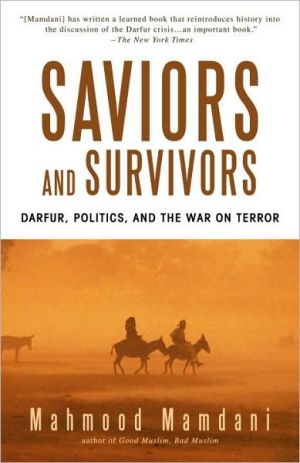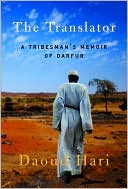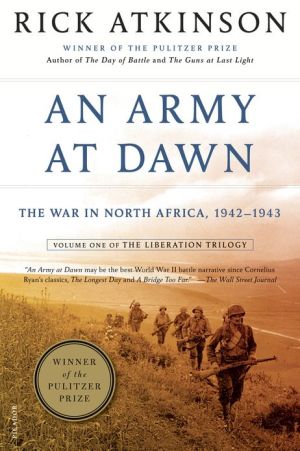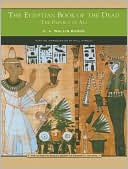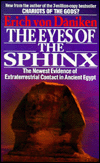Saviors and Survivors: Darfur, Politics, and the War on Terror
From the author of Good Muslim, Bad Muslim comes an important book, unlike any other, that looks at the crisis in Darfur within the context of the history of Sudan and examines the world’s response to that crisis.\ In Saviors and Survivors, Mahmood Mamdani explains how the conflict in Darfur began as a civil war (1987—89) between nomadic and peasant tribes over fertile land in the south, triggered by a severe drought that had expanded the Sahara Desert by more than sixty miles in forty years;...
Search in google:
From the author of Good Muslim, Bad Muslim comes an important book, unlike any other, that looks at the crisis in Darfur within the context of the history of Sudan and examines the world’s response to that crisis. In Saviors and Survivors, Mahmood Mamdani explains how the conflict in Darfur began as a civil war (1987—89) between nomadic and peasant tribes over fertile land in the south, triggered by a severe drought that had expanded the Sahara Desert by more than sixty miles in forty years; how British colonial officials had artificially tribalized Darfur, dividing its population into “native” and “settler” tribes and creating homelands for the former at the expense of the latter; how the war intensified in the 1990s when the Sudanese government tried unsuccessfully to address the problem by creating homelands for tribes without any. The involvement of opposition parties gave rise in 2003 to two rebel movements, leading to a brutal insurgency and a horrific counterinsurgency–but not to genocide, as the West has declared.Mamdani also explains how the Cold War exacerbated the twenty-year civil war in neighboring Chad, creating a confrontation between Libya’s Muammar al-Qaddafi (with Soviet support) and the Reagan administration (allied with France and Israel) that spilled over into Darfur and militarized the fighting. By 2003, the war involved national, regional, and global forces, including the powerful Western lobby, who now saw it as part of the War on Terror and called for a military invasion dressed up as “humanitarian intervention.”Incisive and authoritative, Saviors andSurvivors will radically alter our understanding of the crisis in Darfur. The New York Times - Howard W. French Mahmood Mamdani…is one of the most penetrating analysts of African affairs. In Saviors and Survivors: Darfur, Politics, and the War on Terror, he has written a learned book that reintroduces history into the discussion of the Darfur crisis and questions the logic and even the good faith of those who seek to place it at the pinnacle of Africa's recent troubles. It is a brief, he writes, "against those who substitute moral certainty for knowledge, and who feel virtuous even when acting on the basis of total ignorance."
INTRODUCTION\ The Save Darfur movement claims to have learned from Rwanda. But what is the lesson of Rwanda? For many of those mobilized to save Darfur, the lesson is to rescue before it is too late, to act before seeking to understand. Though it is never explicitly stated, Rwanda is recalled as a time when we thought we needed to know more; we waited to find out, to learn the difference between Tutsi and Hutu, and why one was killing the other, but it was too late. Needing to know turned into an excuse for doing nothing. What is new about Darfur, human rights interventionists will tell you, is the realization that sometimes we must respond ethically and not wait. That time is when genocide is occurring.\ But how do we know it is genocide? Because we are told it is. This is why the battle for naming turns out to be all- important: Once Darfur is named as the site of genocide, people recognize something they have already seen elsewhere and conclude that what they know is enough to call for action. They need to know no more in order to act. But killing is not what defines genocide. Killing happens in war, in insurgency and counterinsurgency. It is killing with intent to eliminate an entire group—a race, for example—that is genocide.\ Those who prioritize knowing over doing assume that genocide is the name of a consequence, and not its context or cause. But how do we decipher “intent” except by focusing on both context and consequence? The connection between the two is the only clue to naming an action. We shall see that the violence in Darfur was driven by two issues: one local, the other national. The local grievance focused on land and had a double background; its deep background was a colonial legacy of parceling Darfur between tribes, with some given homelands and others not; its immediate background was a four-decades-long process of drought and desertification that exacerbated the conflict between tribes with land and thosewithout.The national contextwas a rebellion that brought the state into an ongoing civil (tribal) war.\ The conflict in Darfur began as a localized civil war (1987–89) and turned into a rebellion (beginning in 2003). That Darfur was the site of genocide was the view of one side in the civil war—the tribes with land whosought to keep out landless or land-poor tribes fleeing the advancing drought and desert. As early as the 1989 reconciliation conference in Darfur, that side was already using the language of “genocide”—and indeed “holocaust.” But that charge was made against the coalition of tribes they fought, and not against the government of Sudan. In spite of this important difference, that language has come to inform the view of those who blew the whistle—genocide—at theU.S. Holocaust Memorial Museum in 2004 and was translated into a unanimous resolution of both houses of theU.S.Congress that year.\ Observers noted the exceptional brutality with which both sides fought the civil war. This derived in part from the zero-sum nature of the conflict: the land conflict was about group survival. If the stakes were already high, the lethal means to wage this bitter conflict were provided by external powers. In the opening phase, these deadly weapons came from adversaries in the Cold War over Chad: Colonel Muammar al-Quaddafi of Libya and the anti-Libyan triad (Reaganite America, France, and Israel); with the onset of rebellion, the government of Sudan stepped in to wage a brutal counterinsurgency, just as the managers of the War on Terror set about framing the government as genocidaire while shielding the insurgents in the name of justice.\ There have been two international reports on the post-2003 violence in Darfur. The first was by the U.N. Commission on Darfur (2005) and the second from the prosecutor of the International Criminal Court (2008). Neither paid attention to the land question that has fueled the two-decades-long civil war in Darfur. Instead, they focused on those who had contributed to further militarizing the conflict. But even that focus was partial, limited to the government of Sudan; it was silent about the role of regional and international powers in exacerbating and militarizing the conflict over the Cold War and the subsequent War on Terror.\ The U.N. Commission concluded “that the Government of Sudan has not pursued a policy of genocide,” for the element of “genocidal intent” was missing. It derived the government’s lack of genocidal intent from the context of the violence: “it would seem that those who planned and organized attacks on villages pursued the intent to drive the victims from their homes, primarily for purposes of counter-insurgency warfare.”1 In contrast, when the prosecutor of the International Criminal Court charged the president of Sudan, Omar Hasan Ahmad al-Bashir, with genocide, he focused on the consequences of the violence, not its context.\ Let us compare deaths related to violence in two places: Darfur and Iraq. The Darfur insurgency began in 2003, the same year as the United States invaded Iraq. I discuss estimates of the number of “excess deaths” (that is, deaths beyond what would ordinarily be expected) in Darfur in chapter 1, but, briefly, the estimates for the period during which the violence was horrendous (2003–4) range from 70,000 to 400,000. Compare this with three available estimates of excess deaths in Iraq following the U.S. invasion in 2003.* The lowest comprehensive estimate, from the Iraqi Health Ministry survey, published in The New England Journal of Medicine, is of 400,000 Iraqi deaths, of which 151,000 are said to be “violent deaths.” A middling estimate is from the British medical journal The Lancet: an estimated 654,965 excess deaths, of which 601,027 are said to be violent. The highest estimate comes from a survey by Opinion Research Business, an independent polling agency located in London: 1,033,000 violent deaths as a result of the conflict. The first two estimates cover the period from the 2003 invasion to June 2006. The third survey extends to August 2007.2\ Not only are the figures for Iraq far higher than those for Darfur, ranging from a low of 400,000 to a high of 1,033,000, but the proportion of violent deaths in relation to the total excess mortality is also far higher in Iraq than in Darfur: 38 percent to nearly 92 percent in Iraq, but 20 to 30 percent in Darfur. So why do we call the killing in Darfur genocide but not that in Iraq? Is it because, despite the wide disparity in the number of excess deaths, whether violence- related or violent, victims and perpetrators belong to different races in Darfur but not in Iraq? That is what many assume, but the facts do not bear this out.\ Those who blew the whistle on Darfur in 2004 have continued to argue, for almost four years, that the violence in Darfur is racially motivated, perpetrated by “light- skinned Arabs” on “black Africans.” In the chapters that follow, I suggest that this kind of framing of the violence continues the error that came out of the colonial tradition of racializing the peoples of Sudan.\ This book invites the reader to rethink Rwanda in light of Darfur. Rather than a call to act in the face of moral certainty, it is an argument against those who substitute moral certainty for knowledge, and who feel virtuous even when acting on the basis of total ignorance.\ Indeed, the lesson of Darfur is a warning to those who would act first and understand later. Only those possessed of disproportionate power can afford to assume that knowing is irrelevant, thereby caring little about the consequences of their actions. Not only is this mind-set the driving force behind the War on Terror, it also provides the selfindulgent motto of the human rights interventionist recruited into the ranks of the terror warriors. This feel-good imperative can be summed up as follows: as long as I feel good, nothing else matters. It is this shared mind-set that has turned the movement to Save Darfur into the humanitarian face of the War on Terror.\ In contrast to those who suggest that we act the minute the whistle blows, I suggest that, even before the whistle blows, we ceaselessly try to know the world in which we live—and act. Even if we must act on imperfect knowledge, we must never act as if knowing is no longer relevant.\ Save Darfur activists combine a contemptuous attitude toward knowing with an imperative to act. Trying hard not to be “good Germans,” they employ techniques of protest politics against their own government—and now the government of China—and turn a deaf ear to experts who they claim only complicate the story with so many details as to miss the main point. Instead, they rely on the evidence of their eyes and avoid any discussion of context. But by letting pictures and interviews do the talking, they have opened an entire movement to “the CNN effect.” If “good Germans” were taught to trust their leaders first and ask questions later, the good souls mobilized to save Darfur are taught to trust pictures above all else and ask questions later. Above all, they strip Darfur—and the violence in Darfur—of context.\ I put Darfur as well as Rwanda in a national, African, and global context, which over the past century has been one of colonialism, the Cold War, and the War on Terror. In 2001, I wrote a book on the Rwanda genocide in which I warned against conferring an ethic of impunity on those who resist genocide. Such impunity led to the killing of some of the millions who died in Congo between 1998 and 2002. Equally, I warned against turning Nuremburg into a paradigm for victors’ justice and employing it as a response to the Rwanda genocide. For a continent where a relentless pursuit of justice in the postindependence period had all too often turned into vengeance, a more relevant paradigm would be that of survivors’ justice. Based on South Africa’s transition to a postapartheid society, it would seek to reconcile rather than to punish, to look forward rather than backward.\ Calling the violence in Darfur genocide has had three consequences. First, it has postponed any discussion of context while imposing the view of one party in the 1987–89 civil war in the name of stopping the “genocide.” Second, it has conferred impunity on these same partisans by casting them as resisters to genocide. Finally, the description of the violence as genocide—racial killing—has served to further racialize the conflict and give legitimacy to those who seek to punish rather than to reconcile. Thus, the movement to save Darfur, which initially had the salutary effect of directing world attention to the horrendous violence in Darfur in 2003–4,must now bear some of the blame for delaying reconciliation by focusing on a single- minded pursuit of revenge as punishment.\ There is an important difference between Rwanda and Darfur. Rwanda was the site of genocide. Darfur is not. It is, rather, the site where the language of genocide has been turned into an instrument. It is where genocide has become ideological.
Acknowledgments xiMap xivIntroduction 3Part I The Save Darfur Movement and the Global War on Terror1 Globalizing Darfur 192 The Politics of the Movement to Save Darfur 48Part II Darfur in Context3 Writing Race into History 754 Sudan and the Sultanate of Dar Fur 1095 A Colonial Map of Race and Tribe: Making Settlers and Natives 1456 Building Nation and State in Independent Sudan 1717 The Cold War and Its Aftermath 206Part III Rethinking the Darfur Crisis8 Civil War, Rebellion, and Repression 231Conclusion: Responsibility to Protect or Right to Punish? 271Notes 301Select Bibliography 357Index 375
\ Howard W. FrenchMahmood Mamdani…is one of the most penetrating analysts of African affairs. In Saviors and Survivors: Darfur, Politics, and the War on Terror, he has written a learned book that reintroduces history into the discussion of the Darfur crisis and questions the logic and even the good faith of those who seek to place it at the pinnacle of Africa's recent troubles. It is a brief, he writes, "against those who substitute moral certainty for knowledge, and who feel virtuous even when acting on the basis of total ignorance."\ —The New York Times\ \ \ \ \ Publishers WeeklyMamdani (Good Muslim, Bad Muslim) continues to challenge political and intellectual orthodoxies in his latest book, a bold, near brilliant re-examination of the conflict in Darfur. While acknowledging the "horrendous violence" committed in the region, Mamdani contends that Darfur is not the site of genocide but rather a "site where the language of genocide has been used as an instrument." The author believes that the "war on terror" provided an international political context in which the perpetrators of violence in Darfur could be categorized as "Arabs" seeking to eradicate "black" Africans in the region. Challenging these racial distinctions, Mamdani traces the history of Sudan and the origins of the current conflict back past the 10th century to demonstrate how the divide between Arab and non-Arab ethnic groups is political rather than racial in nature. The author persuasively argues that the conflict in Darfur is a political problem, with a historical basis, requiring a political solution-facilitated not by the U.N. or a global community but rather by the African Union and other African states. The book's introductory and closing chapters are essential reading for those interested in the topic. (Mar.)\ Copyright © Reed Business Information, a division of Reed Elsevier Inc. All rights reserved.\ \ \ Library JournalHighlighted by the International Criminal Court's recent indictment of Sudanese president Omar Hassan al-Bashir on counts of war crimes and crimes against humanity, the turmoil in the Darfur region of the Sudan continues to evoke both impassioned advocacy and controversy. The latter stems primarily from the power inherent in one word-genocide-and whether or not it should be applied to events in the region. The World and Darfur, edited by Grzyb (information & media studies, Univ. of Western Ontario), uniquely encompasses a diversity of scholarship by both social scientists and scholars in the humanities (all genocide scholars), who examine the West's response (or lack thereof) to Darfur. The essays from humanities scholars are especially powerful, ranging from the deconstruction of language used by Western and Sudanese politicians to the messages conveyed in art drawn by children in Darfur refugee camps. The message is clear: genocide occurred and continues to occur in Darfur, and Western nations-stalled by bureaucracy and politics-have a moral and legal obligation to intervene.\ In stark contrast, Mamdani (Good Muslim, Bad Muslim) argues that calling the events in Darfur genocide is inaccurate and irresponsible. In his sweeping history of Darfur, Mamdani claims that the political and cultural complexities of the region have brought about events that are indeed tumultuous but do not constitute genocide. He believes that the West's concern with Darfur is a preferred distraction from the failed U.S. occupation in Iraq, offering Western citizens a means to reclaim the moral high ground. At the core of Mamdani's argument is an explicit fear that the claim ofgenocide and call for justice is a thinly veiled attempt to recolonize Africa. These books offer strikingly disparate interpretations of Darfur, each stamped as truth. At times, the in-depth academic analyses betray a certain level of detachment from the human experience in Darfur that can be a bit disheartening. That aside, both books provide valuable historical and cultural background to recent events in Darfur and the sure-to-continue scholarly debate on genocide.\ —Veronica Arellano\ \ \ \ \ \ Kirkus ReviewsHow do we know that genocide is taking place in Darfur? "Because we are told it is," writes Mamdani (Government/Columbia Univ.; Good Muslim, Bad Muslim: America, the Cold War, and the Roots of Terror, 2004, etc.), who argues that it is not. While serving as George W. Bush's secretary of state, Colin Powell declined to characterize the unfolding events in Darfur as genocidal, saying, "why would we call it genocide when the genocide definition has to meet certain legal tests?" But Powell, pressured by others in the government, eventually claimed that genocide was indeed being committed, abetted by the government of Sudan-the first time, Mamdani writes, that one government had ever accused another of the act. Mamdani examines those legal tests, concluding that, whereas events in Rwanda and the Congo in the last two decades fall into the category of genocide, those in Darfur do not. That is not to say that Westerners should not act to relieve the civilian suffering that has resulted from Sudan's brutal counterinsurgency campaign. It is just, Mamdani argues, that there is a difference between knowledge and moral certainty, and "the lesson of Darfur is a warning to those who act first and understand later." The author limns a tightly constructed history of central Africa that places Darfur in the context not only of regional tensions among the neighboring states of Chad and Sudan and of ethnic tensions among Arabs and black Africans, but also of the larger Cold War and the interplay of client states serving the superpowers-and, later, the superpower of Washington on one hand and the regional power of Libya on the other. His argument that Darfur is the inevitable result of proxy war is welltaken, but his evident contempt for the Western intervention effort-in which Darfurians "are not citizens in a sovereign political process as much as wards in an open-ended international rescue operation"-takes an unhelpfully contrarian tone given that, after all, actual lives are at stake. Eminently debatable, but a necessary contribution to the literature surrounding both humanitarian aid and African geopolitics. Agency: Gelfman Schneider Literary Agents\ \
